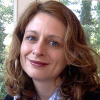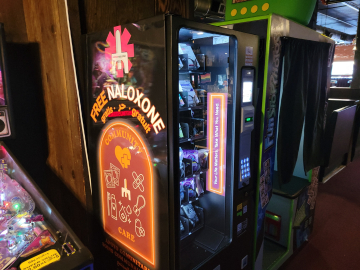An Audacious Idea: Reinventing Education for Community Health Workers in the Digital Age
Making the case for going big, James Nardella, who serves as a principal at the Skoll Foundation, brought together panelists at the Global Health & Innovation conference to talk about one of the Audacious Project’s big ideas.
The initiative, revealed at the Skoll World Forum last week at Oxford University, aims to deploy 50,000 community health workers (CHWs)—with the goal of reaching 34 million people. Living Goods and Last Mile Health, the organization led by Raj Panjabi (recently covered in a GHN exclusive), will use the support to grow the Community Health Academy and expand online training courses to CHWs. It’s a big bet—high potential, but also high risk, said Nardella—but if it succeeds, it will significantly reduce mat and child mortality and block disease outbreaks.
There’s a need for the project, Nardella said, because there’s a gap between best practices developed and tested on the ground by groups like Last Mile Health and national networks of CHWs. That’s why governments will be a critical focus, Abigail McDaniel of Last Mile Health, one of the panelists, emphasized the project’s intent to make sure it’s a government owned and implemented program, with partners providing financial and technical support in the background—“taking ownership or ego out of it and showcasing the government.”
The Audacious Project is a collaboration of donors (including The Bill and Melinda Gates Foundation, the Dalio Foundation, the Skoll Foundation, and Virgin Unite) teaming up to raise $250 million to fund up to 5 critical projects a year with the potential to deliver massive, global change, according to TED, where the initiative launched earlier this month.
Join the tens of thousands of subscribers who rely on Global Health NOW summaries and exclusive articles for the latest public health news. Sign up for our free weekday enewsletter, and please share the link with friends and colleagues: http://www.globalhealthnow.org/subscribe.html




